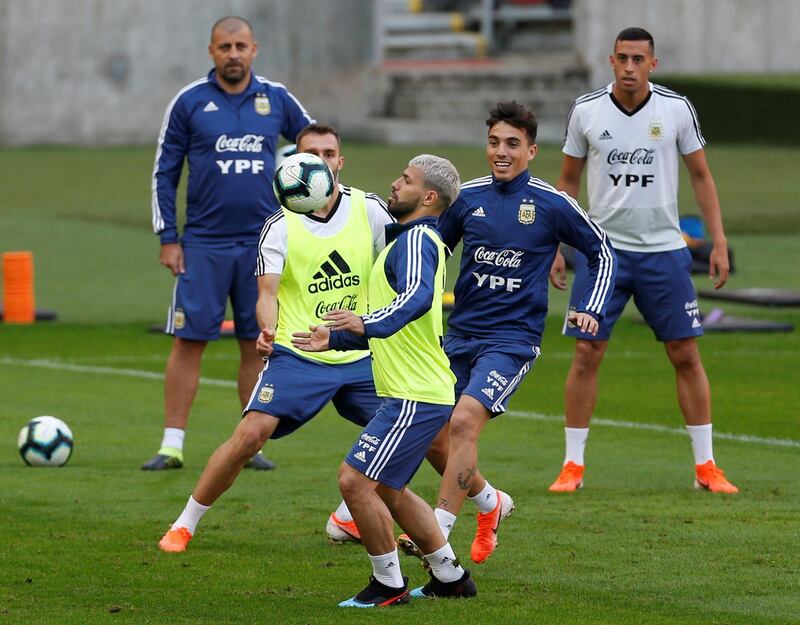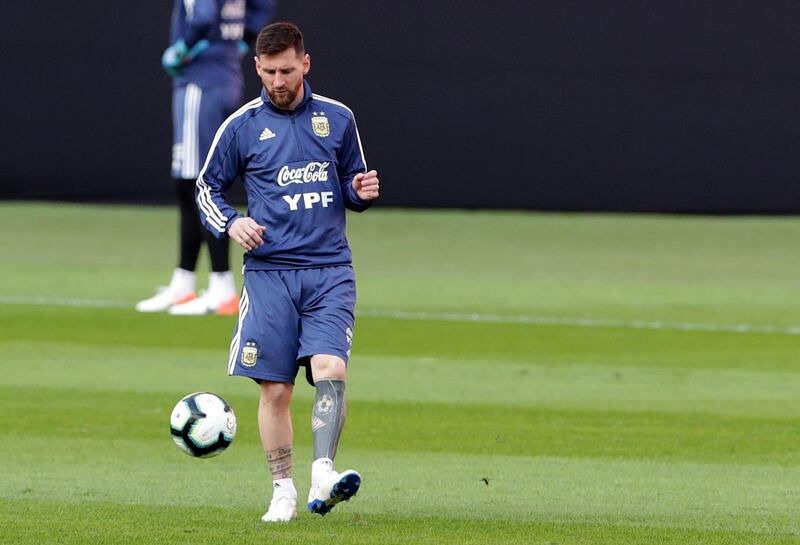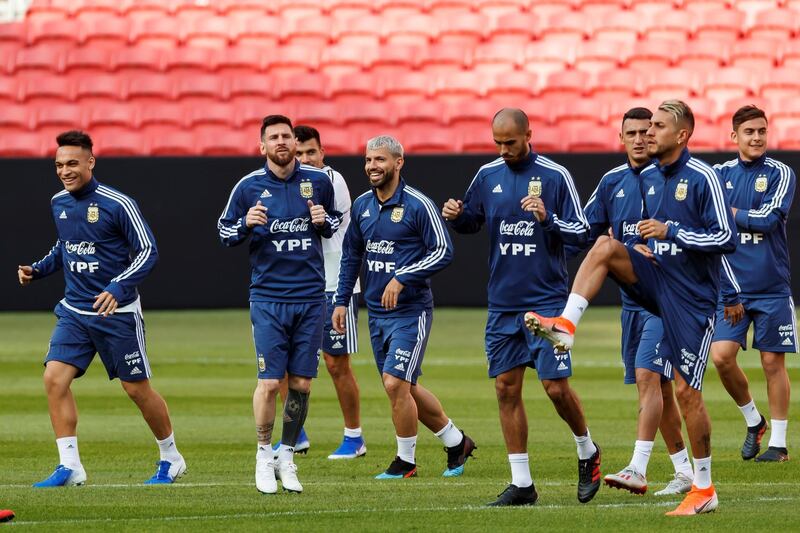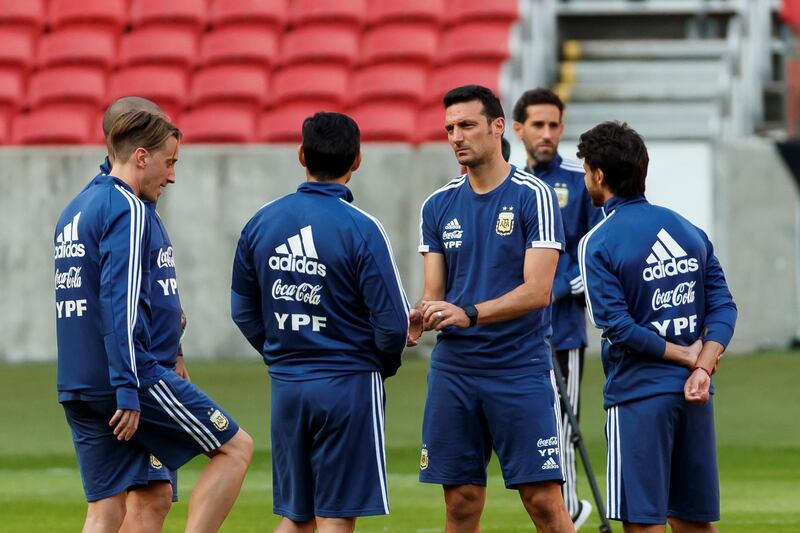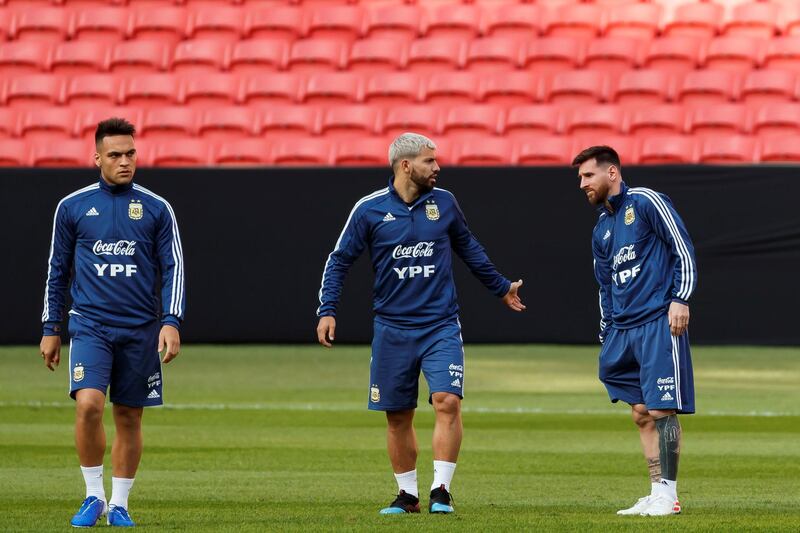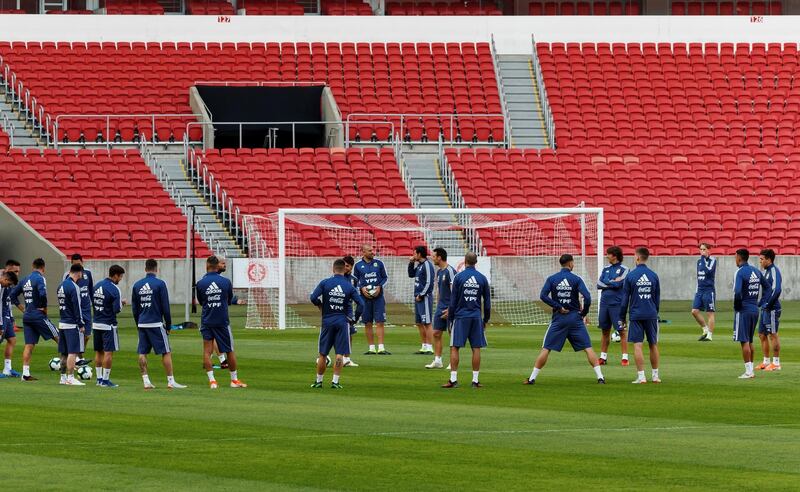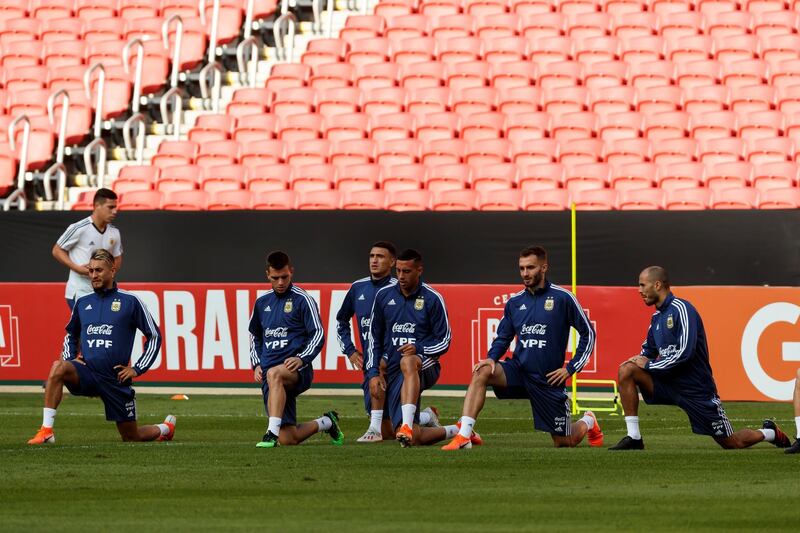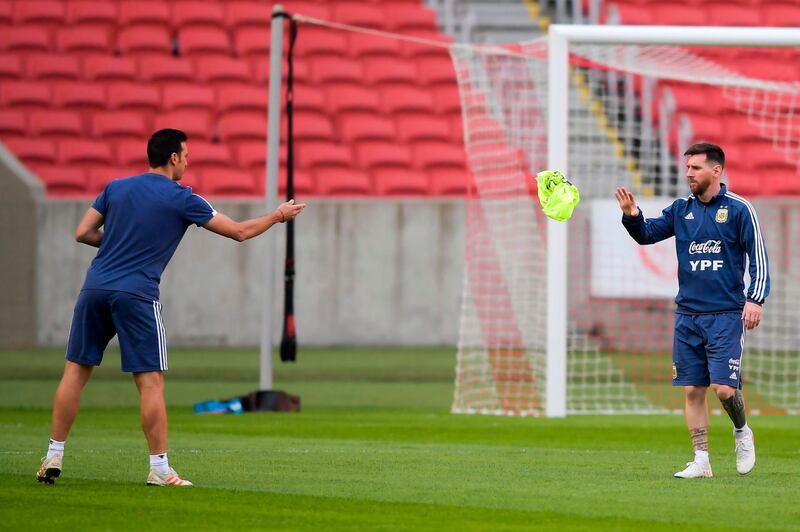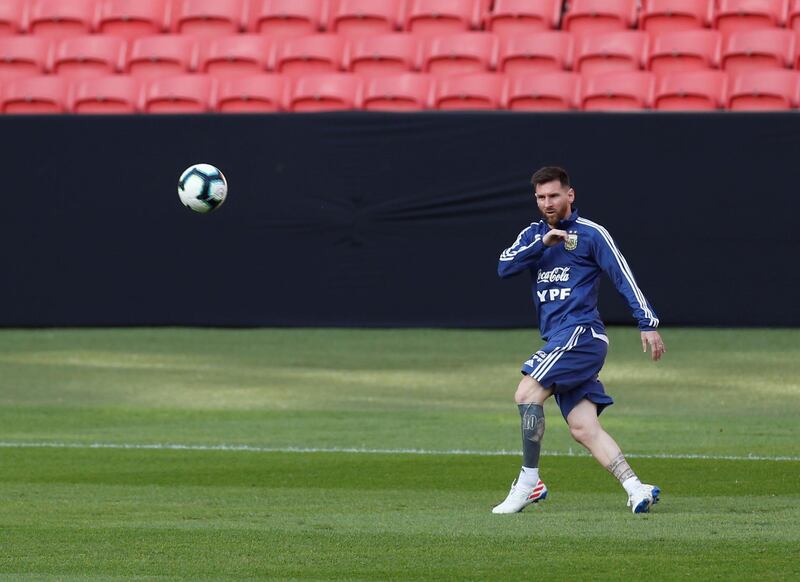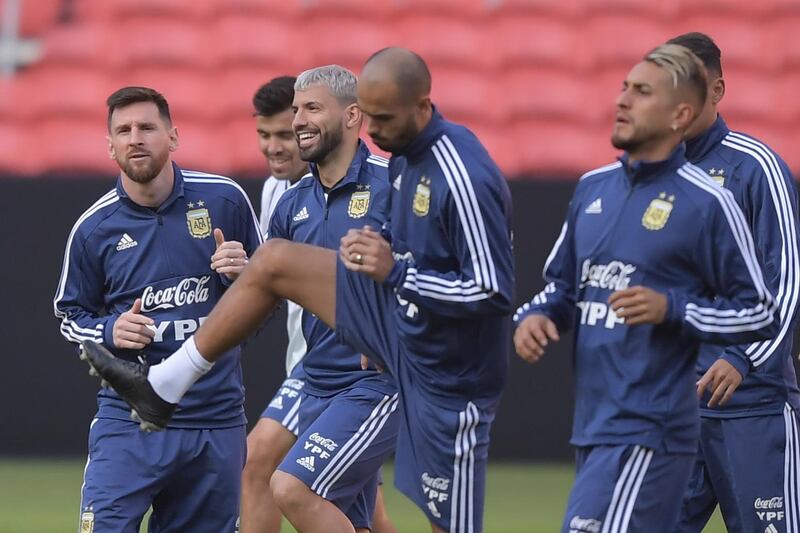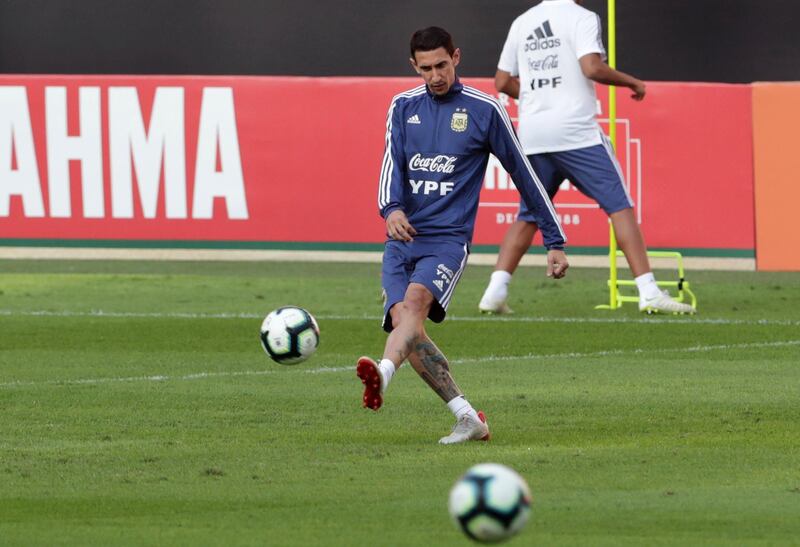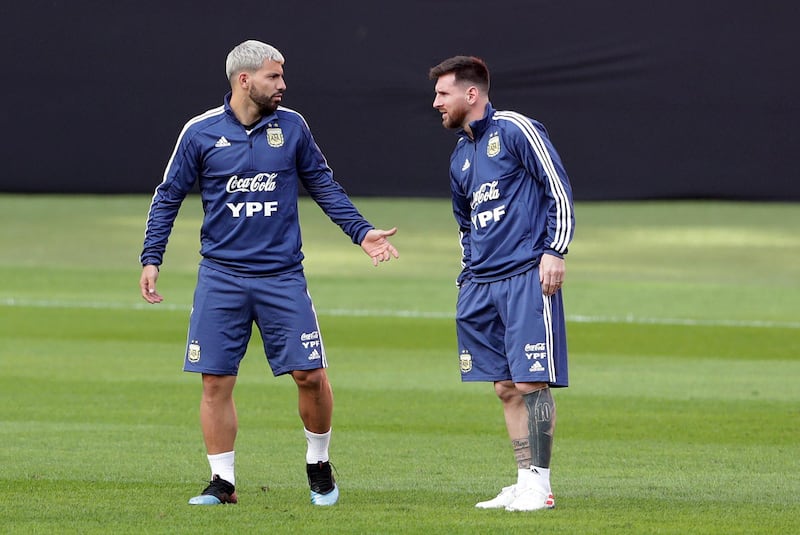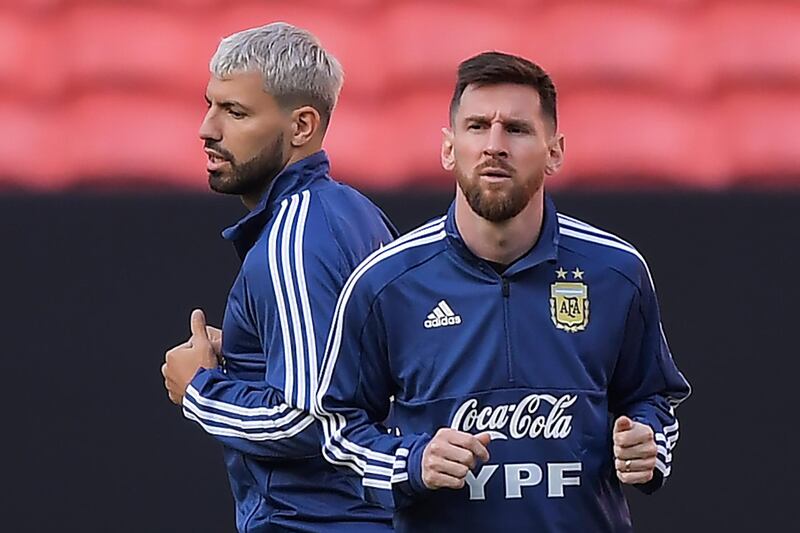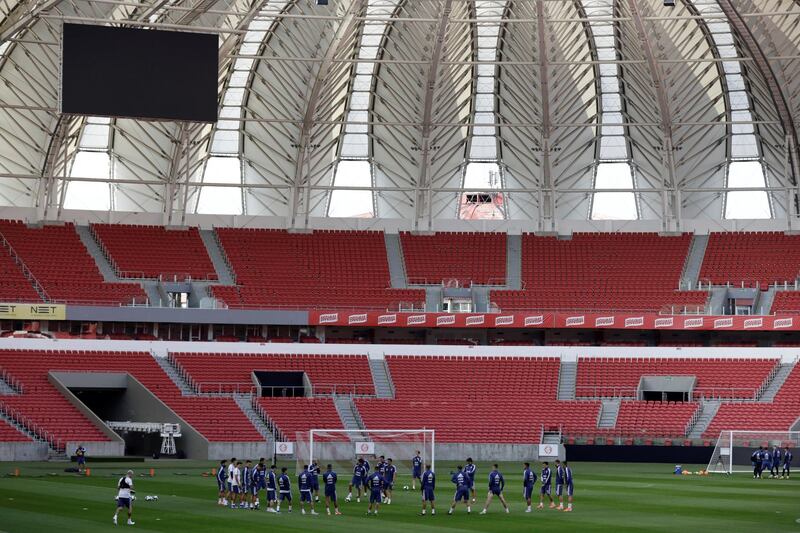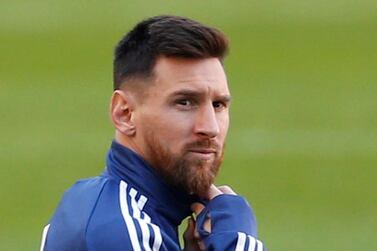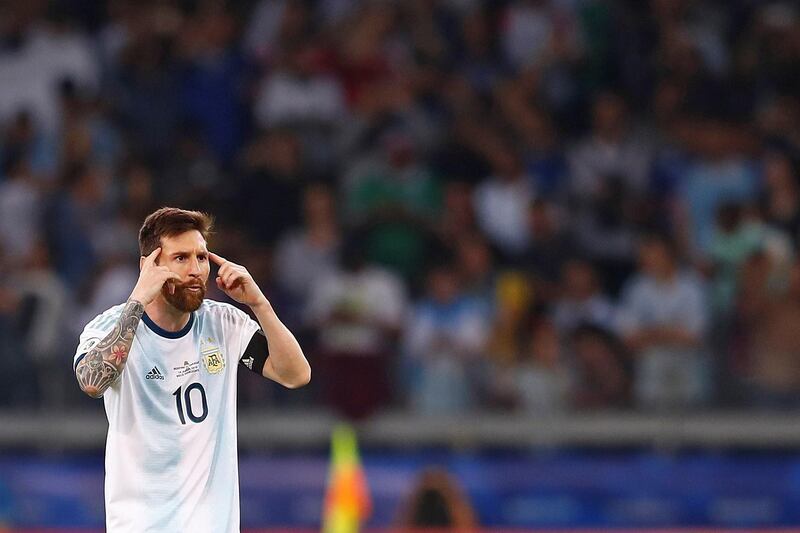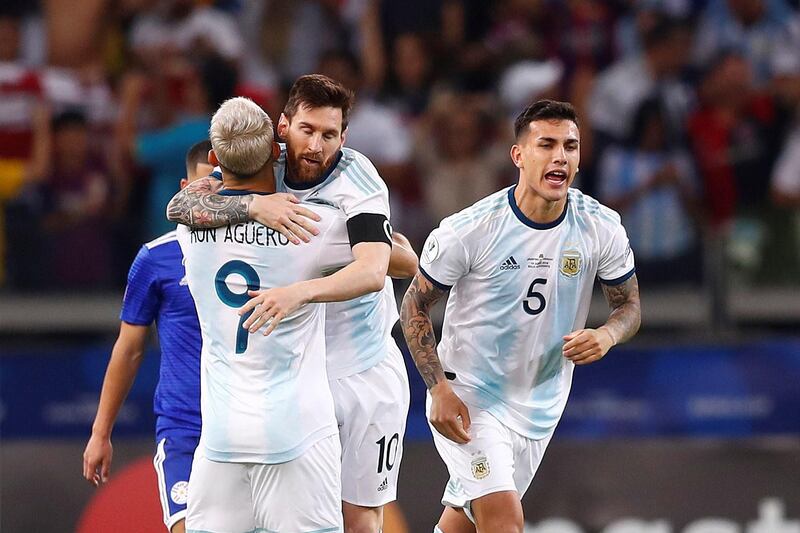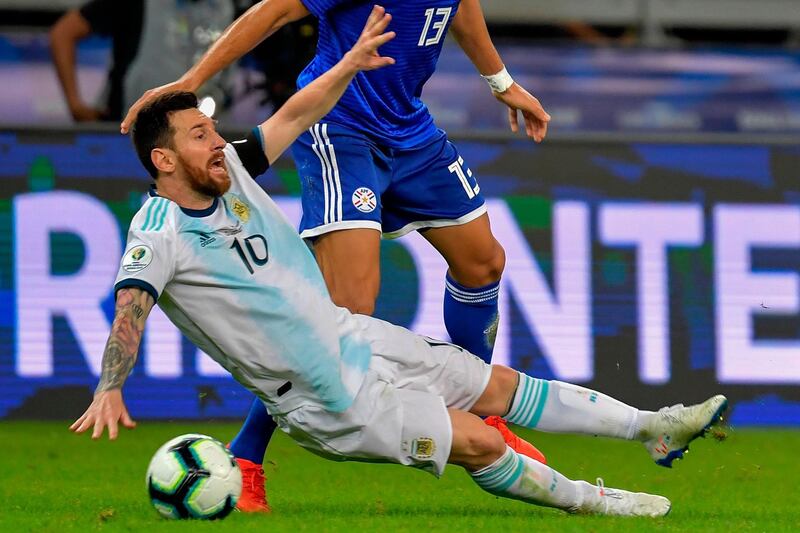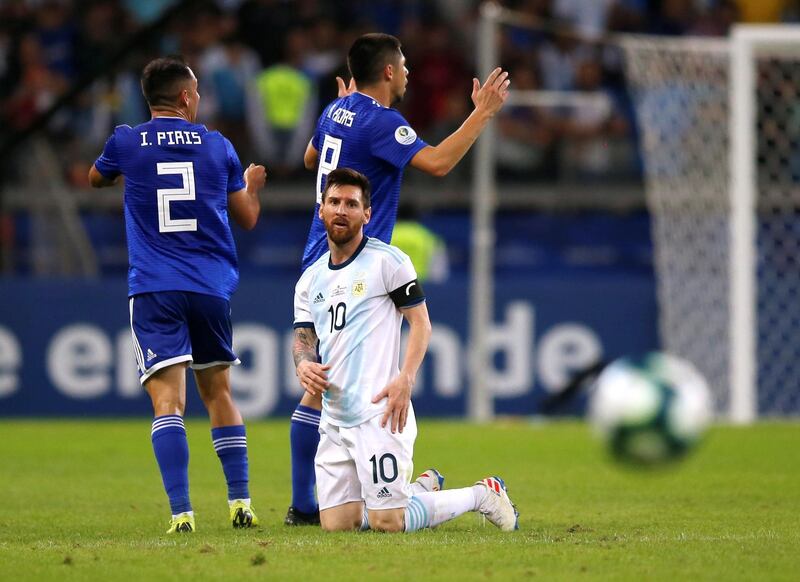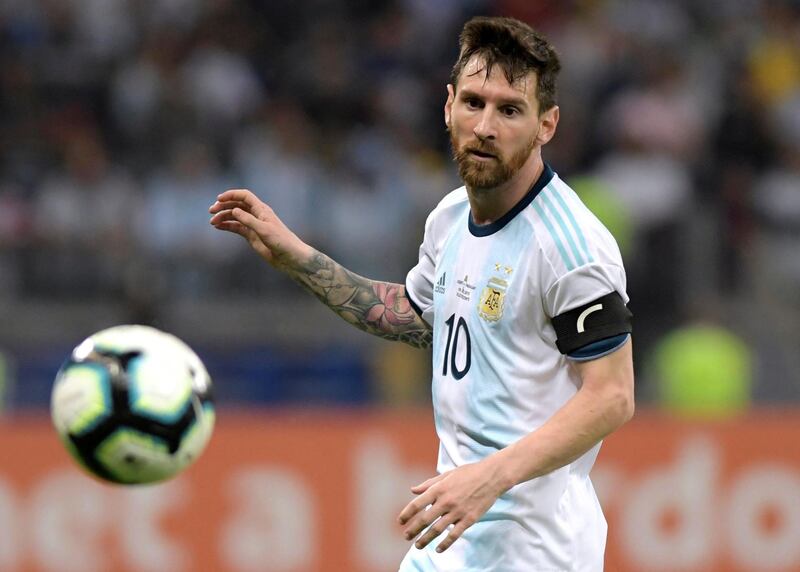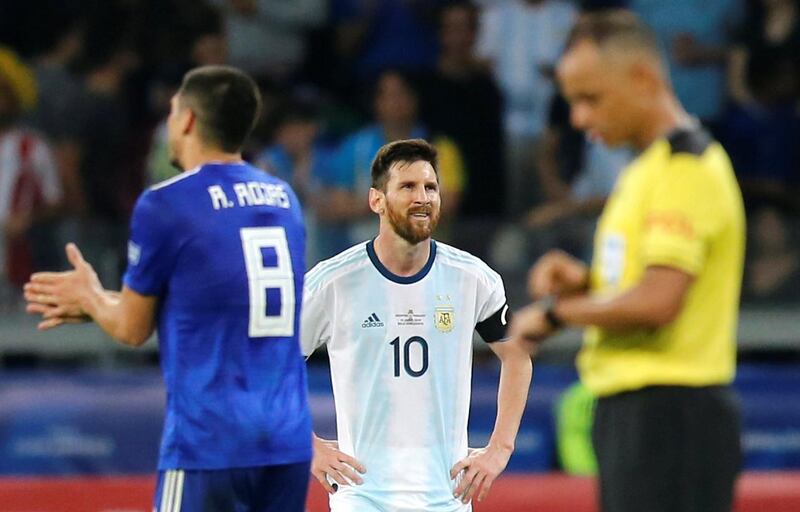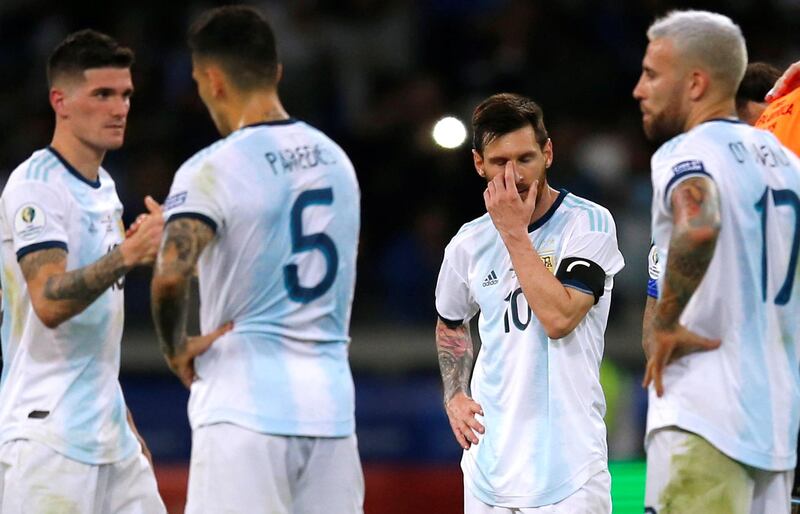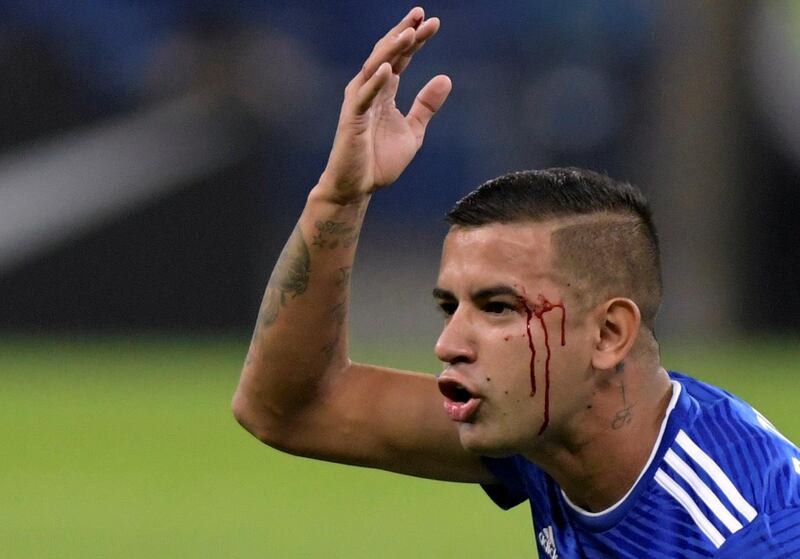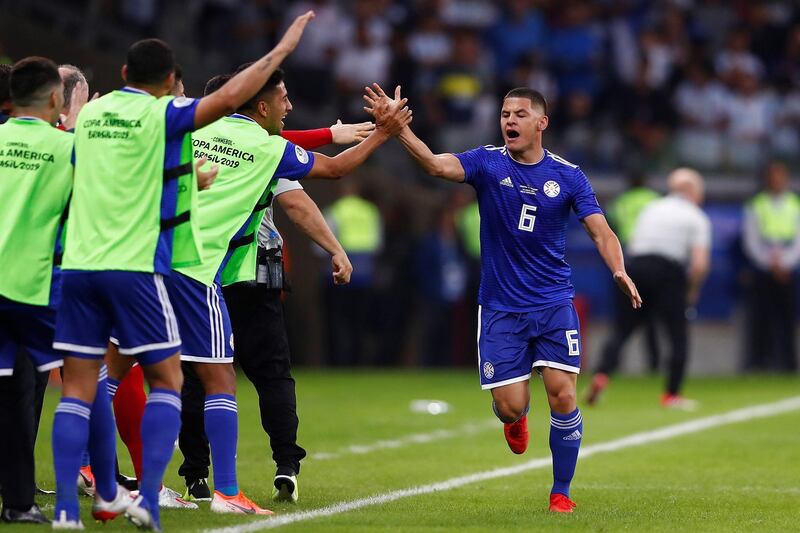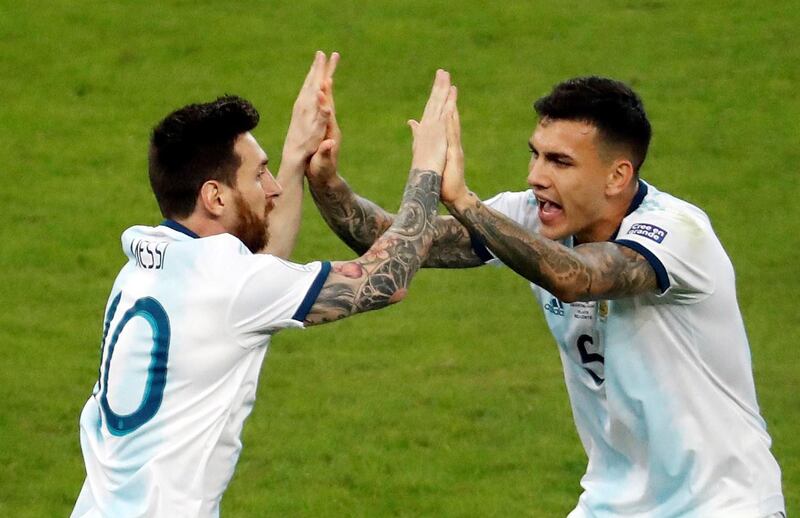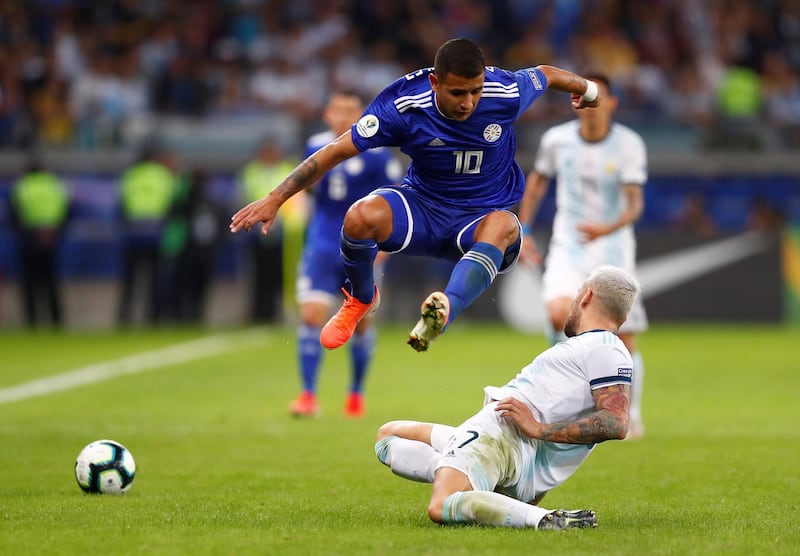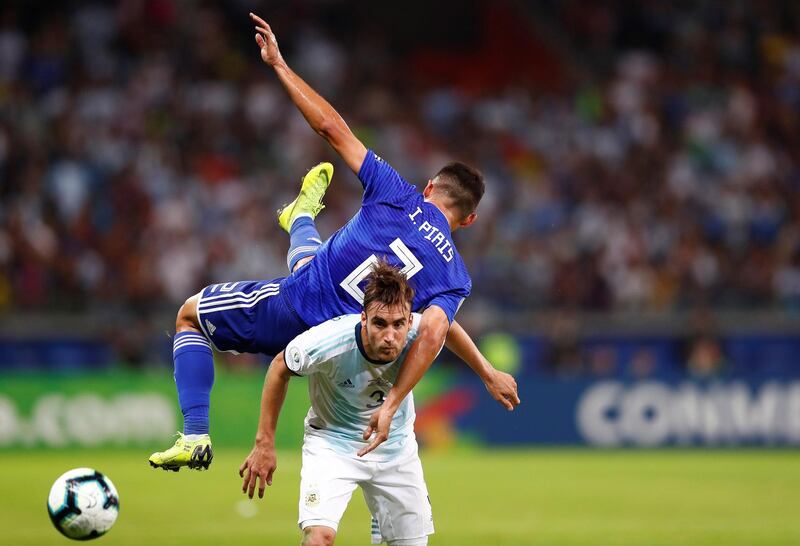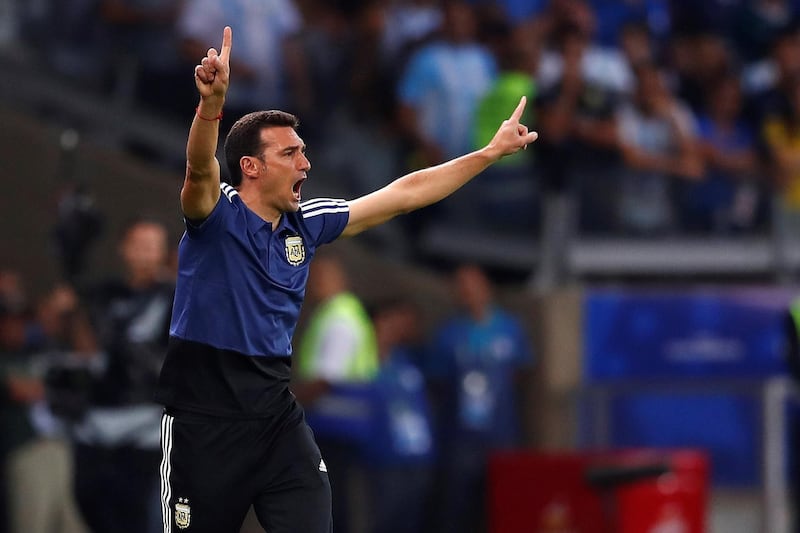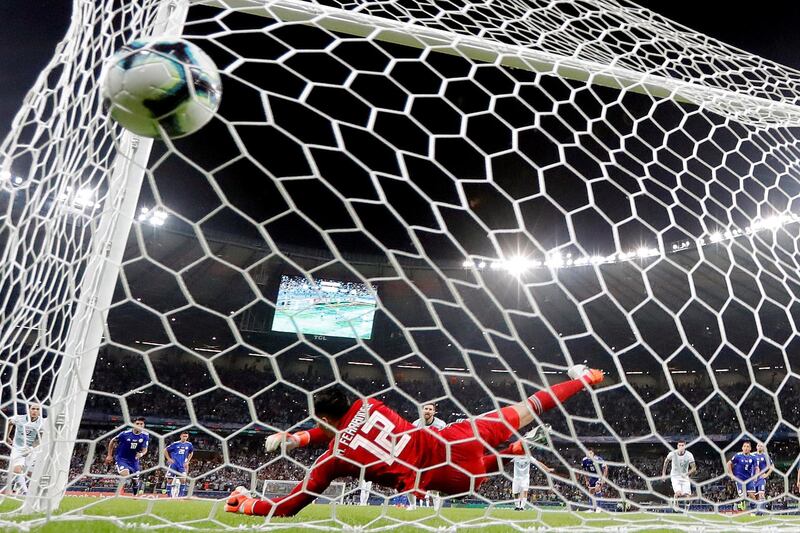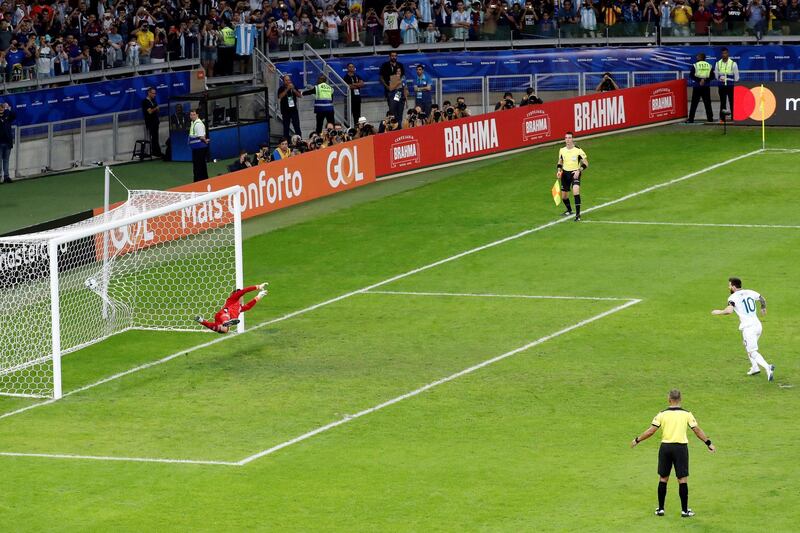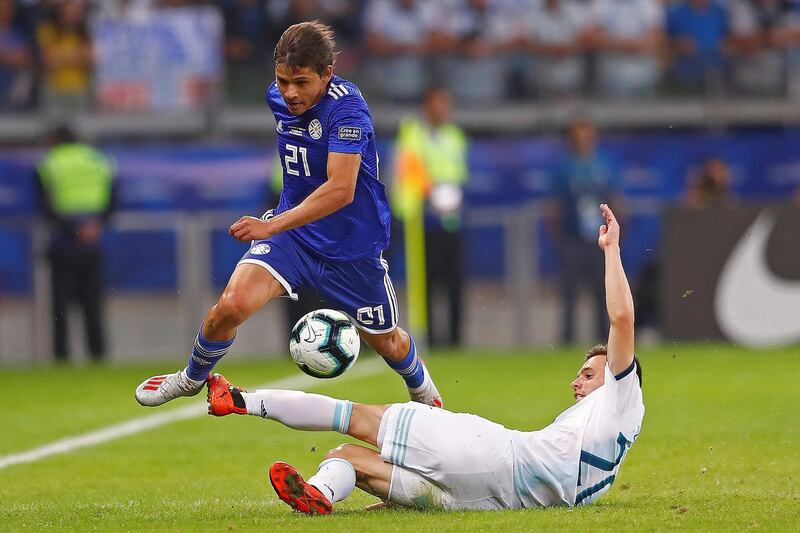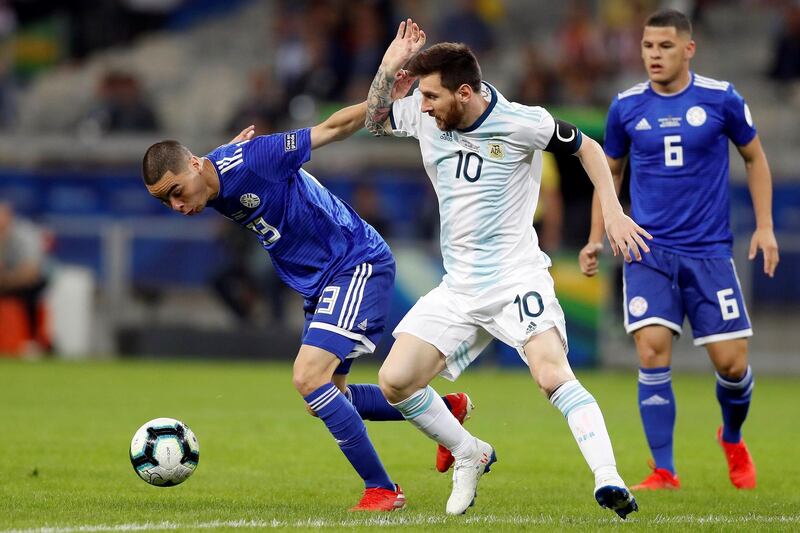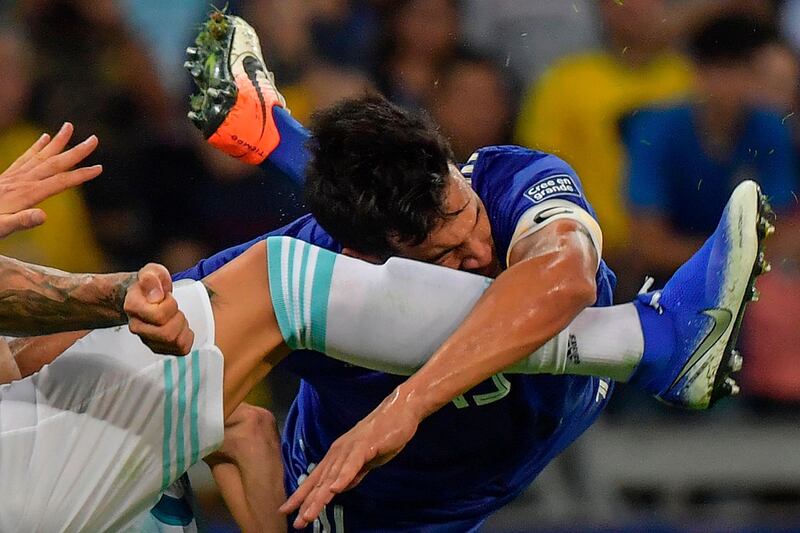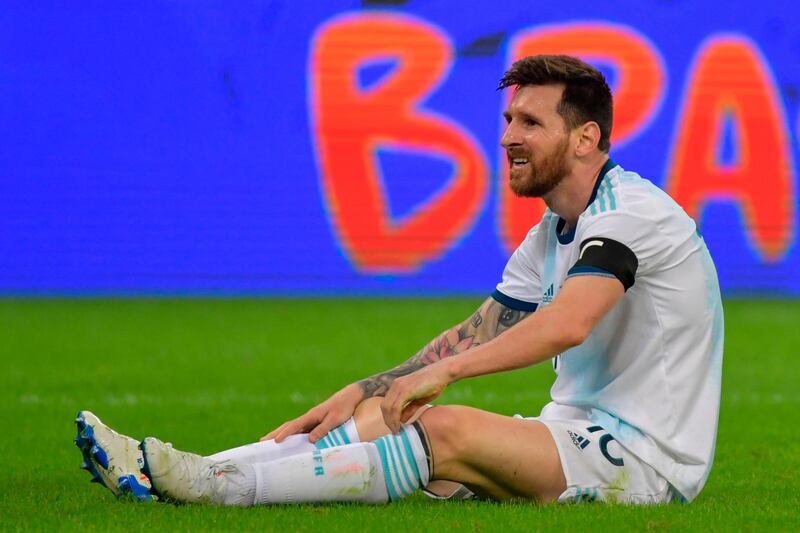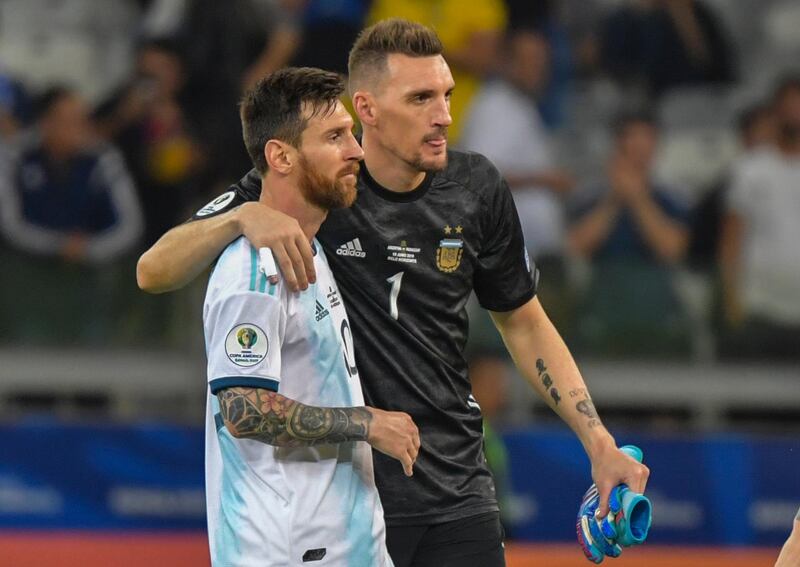“The pressure for Argentina is always present,” said Paraguay’s Argentine manager Eduardo Berizzo. “It has to do with the jersey.”
Berizzo was not speaking literally of course — gone are the days when teams would blame a shirt on poor performances. Yet perhaps quagmired Argentina, like Brazil who switched from white to yellow after their transformational World Cup final defeat in 1950, must consider more drastic solutions to the chronic conundrum of how to put an end to their, at times, inexplicable underperforming.
The Albicelestes’ famous vertical stripes are, after all, starting to resemble pale-blue prison bars, from behind which no player, regardless of talent, can perform to his best.
Argentina face Qatar on Sunday night in the final group match of an entirely forgettable Copa America campaign. Even victory against the debutant Asian champions in Porto Alegre might not be enough to guarantee them a place in the knockout stages. Yet to say the lack of excellence on the field has been a surprise would be to ignore the obvious flaws in a team desperately lacking coherence.
Lionel Scaloni is Argentina's caretaker manager. In his side's 1-1 draw with Paraguay on Wednesday, his selection played like they had spent the four days since their disjointed 2-0 defeat to Colombia sitting drinking mate and trying to solve a particularly troublesome sudoku. This rather than practising a gameplan that might help certain players replicate their domestic form at national level.
The two-time world champions conceded first and what followed was a quintessential example of newfound national-team neurosis. They lost all composure in attack, all calmness in midfield, and their defence appeared holier than their most famous compatriot, Pope Francis.
Goalkeeper Franco Armani summed it up when he fashionably rushed out of his area but in an attempt to clear a long punt, made a complete mess of it and retreated with a yellow card and the sense he was lucky to still be on the pitch.
“When the match goes crazy, we start losing balls and suffering counter-attacks,” Scaloni said of a team whose confidence appears as fragile as the little Rhodochrosite ornaments sold throughout their country. “We had a feeling of danger and this removes your trust and confidence.”
It is one of football’s greatest mysteries. A squad that shares more than 35 league titles from across 10 countries, as well as four Champions Leagues and four Copa Libertadores winners' medals, feeling so constrained by their national shirts that they forget how to carry out even the basics leaving them consistently relying on their maverick No 10 to bail them out.
Lionel Messi alone secures his country the title of best forward-line at the tournament. Sergio Aguero, Paulo Dybala, Lautaro Martinez, Angel Di Maria and Giovani Lo Celso, however, have scored 187 goals between them for their respective clubs since the start of the 2017 season.
In 180 minutes in Brazil, Argentina have failed to net a single goal from open play and against Paraguay managed just two shots on target. Absurd does not come close.
Yet if the attack is impotent, the question of how to get the best out of Messi persists like the smell of a parrilla long after the meat has been eaten and the charred embers of wood have been crushed. People continue to ponder it even though the likelihood of an answer is decreasing by the day.
At 31, soon he will say adios one last time and the questions will stop; transmogrifying into one of those coffee shop debates similar to whether Pele would be so revered had he accepted the offer he received from Juventus back in the 1960s.
_______________________________
Photos from Argentina's 1-1 draw with Paraguay
_______________________________
Messi, since his international debut 14 years ago, has worked under nine national team managers and managed a record 68 goals. This month, he has floated around on the right wing, dropping deeper in search of the ball, showing sparks of his ingenuity but largely appearing helpless as his teammates regularly fail to comfortably complete even a quartet of passes.
Scaloni, like his predecessors, has yet to come close to unlocking the player who so consistently dumbfounds expectations in Europe. Yet while simple maths suggests then that coaching might not be the root of the Messi riddle, poor governance and financial restrictions have not helped.
You only need to look in the dugouts of recent finals to conclude Argentina has a conveyor belt of quality managers. Mauricio Pochettino took Tottenham Hotspur to their first Champions League final earlier this month and Diego Simeone is one of the most sought-after coaches in the world after piling up silverware with Atletico Madrid.
Meanwhile, Guillermo Barros Schelotto and Matias Biscay both reached the final of last year’s Copa Libertadores and the 2018 World Cup featured no less than five Argentine managers. Scaloni, in contrast, arrived at the helm last August with zero head coach experience.
Yet while Messi and the managerial messes grab the masses' attention, the simplest of facts is Argentina no longer produce either leaders or defensive-minded players of quality.
While Argentina once called upon the likes of Juan Pablo Sorin, Roberto Ayala, Javier Zanetti, Javier Mascherano and Simeone, now they are left with Nicolas Otamendi, a player who often looks like he is waiting to fall over his own feet. Or concede a penalty, as he did against Paraguay.
Much like an Oscar-winning actor in a bargain-bin romcom, there is little point having a brilliant lead if the rest of the cast and crew are disastrous. Against Qatar on Sunday night, Messi may yet break out of his pale-blue prison. The tragedy lies in the fact he not only must, but that we cannot even be sure he will.
